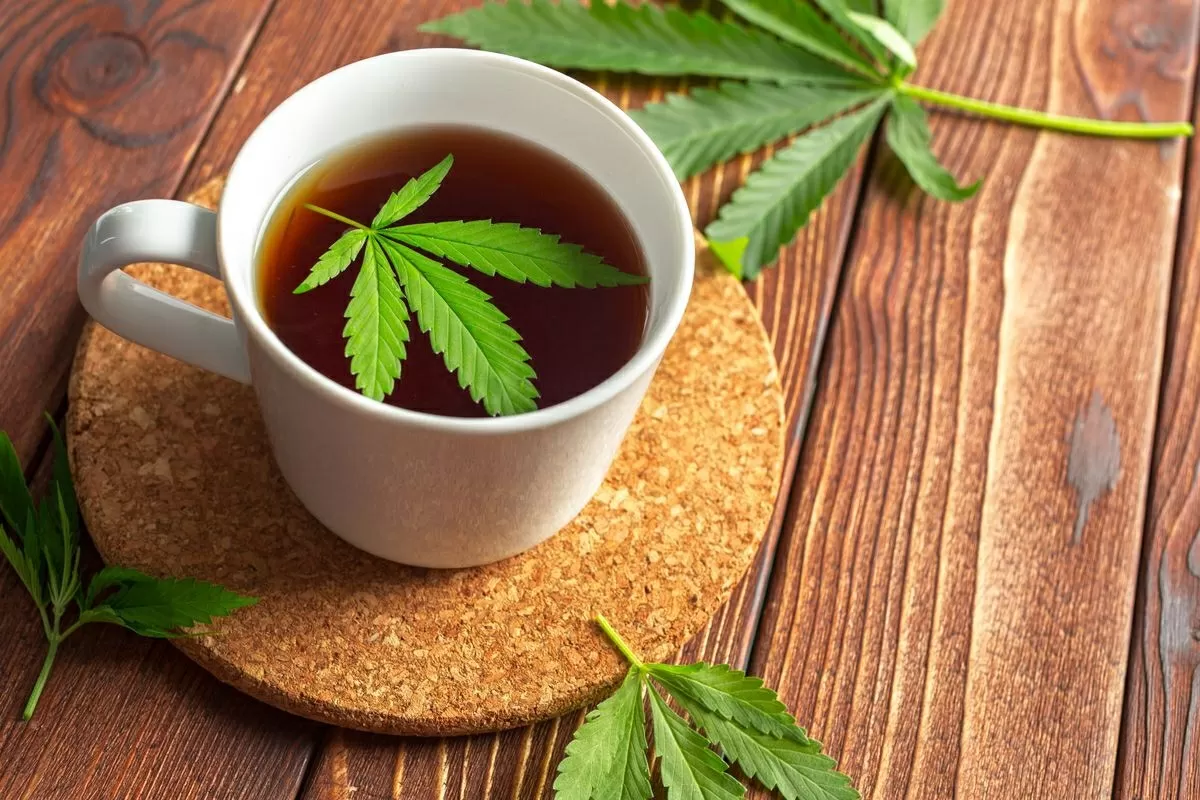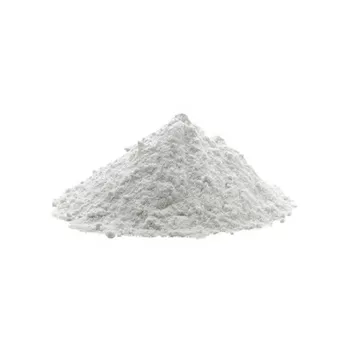Cannabis tea is one of the methods of use for medical cannabis plant. However, its preparation requires a number of precautions to preserve its characteristics and allow optimal decarboxylation and extraction of the active principles THC and CBD.
The Ministry of Health has issued a specific decree providing for a specific protocol for the preparation of infusions, herbal teas and decoctions based on medical marijuana. However, these methods reveal a number of critical issues, which have been widely highlighted by doctors and specialists focusing on galenic preparations. Here, then, is a useful guide on how to prepare an excellent marijuana herbal tea, preserving all its special characteristics and fully optimising its health benefits.
How to make cannabis tea
Weed tea is one of the most widely used methods of taking medical cannabis: there are many preparations that can be traced on internet, many of which involve not only the use of water but also milk, vegetable oils, butter etc., leading to different results in terms of both efficacy and of course effects.
Cannabis herbal tea is a well-known route of administration, but is often linked to recreational use (along with smoking), which is certainly the main route of administration of cannabis.
It should be noted, however, that cannabis herbal tea is in fact one of the least effective routes of administration, in terms of both quality and quantity, when compared to traditional smoking and vaporization. The validity of the preparation is further reduced by the method described and imposed by the Decree itself: in this method, the cannabinoids do not undergo an adequate process of decarboxylation and many beneficial substances are not extracted in the correct way, thus impairing their effects.
A few tips to avoid losing the active principle
In order not to disperse the active principles typical of medical cannabis during the preparation of the herbal tea, particular attention must be paid to the timing of boiling: this allows correct decarboxylation to take place, avoiding loss of terpenes and active ingredients that would be corrupted if exposed to temperatures above 100°C.
It is important to choose the right solvent liquid, which must be made up of mainly fatty matter. Butter or oils are usually used, although milk is the most useful solution since it is made up of an emulsion of water and fat and is perfectly capable of extracting both hydrophilic and lipophilic substances from the marijuana.
The amount of liquid used in the herbal tea should certainly be taken into account: at least 250 ml is needed for cannabis sativa doses of up to 200 mg, increasing both doses progressively and proportionally if necessary. However, adequate preparation of the plant material is also of fundamental importance: the cannabis must be crushed with a grinder or a sharp blade so as to increase the surface of exposure in contact with the solvent liquid, thus promoting decarboxylation and the subsequent extraction of the active ingredients.
Why marijuana herbal tea is good for you
Cannabis herbal tea is one of the healthiest and most beneficial beverages available. It contains high amounts of vitamins, minerals and antioxidants and has the ability to significantly reduce the negative effects of many diseases and conditions such as stress, nausea, insomnia and pain, to name but a few.
It therefore appears to be effective in reducing chronic pain, thanks to the pain-relieving and anti-inflammatory action of medical marijuana. In this case, the effects of cannabis tea tend to be felt as soon as 30 minutes after ingestion, lasting from 4 to 8 hours, thanks to the active ingredients being absorbed directly by the liver and digestive system. Cannabis herbal tea is also widely used to reduce anxiety and depression, as it has neuroprotective properties and plays an important role in regulating behaviour and mood.
However, cannabis herbal tea is also generally used to improve the functioning of the respiratory system in people with respiratory disorders and diseases, as marijuana acts as a bronchodilator, as opposed to tobacco, which is a bronchoconstrictor, reducing the resistance of the respiratory system and facilitating proper oxygenation.
It also helps maintain heart health as cannabinoids help reduce blood pressure, improving circulation and thus limiting the risks of heart attacks and common cardiac disorders. It also alleviates nausea, a symptom often associated with serious illnesses: this is where THC comes into play, helping to alleviate nausea by inducing appetite and thus making up for any serious weight loss by stimulating so-called 'munchies'.
Cannabis herbal tea is also beneficial and effective in alleviating intestinal problems such as Crohn's disease or irritable bowel syndrome, being particularly effective in significantly reducing cramping, constipation and diarrhoea.
A study published in the Journal of Alzheimer's Disease has shown that small amounts of THC can slow down the production of beta-amyloid proteins, a characteristic sign of Alzheimer's disease. This research is still at an embryonic stage, but if it proves to be true in the future, it would represent a further step forward in the field of therapy.
However, it is important to always consult your doctor before taking cannabis herbal tea, especially if you are already undergoing any drug treatment.
Cannabis tea: the original recipe
Cannabis herbal tea offers, among its many other benefits, a marked calming effect, effectively alleviating anxiety and stress, and is highly successful in treating a variety of illnesses and pain conditions. The classic recipe calls for the THC to be extracted using butter, milk or vegetable fats. Here is what you need to use for proper preparation:
- ½ gram of ground cannabis legal inflorescence;
- 1/2 tablespoon of butter;
- Tea bag of any kind;
- 360 ml water;
- Sugar or honey as preferred.
We proceed by crushing the cannabis flower, taking care to separate any seeds and stems present. A grinder is recommended to obtain a plant material of the correct grain size.
The vegetable matter must then be mixed with the butter after placing both in a bowl. It is important during this step to ensure that each portion of the vegetable matter is covered with butter, without over-soaking it to avoid inhibiting the extraction of THC. Butter, like any fat used, favours the extraction of cannabinoids by affinity, as they are both fat-soluble.
At this point, the preparation can be placed in a classic paper tea bag or alternatively in a special sphere used for infusing decoctions and herbal teas. This sphere or sachet should then be placed in hot water that has been brought slightly to the boil and left to infuse for at least 30 minutes on a very low heat.
Once the time necessary for the extraction of the active ingredients has elapsed, the infusion should be kept in infusion for a few more minutes, taking care to allow it to cool slightly before drinking. You can add flavour by adding a tea bag to the drink, or alternatively sweeten with honey, stevia or sugar before drinking.
Cannabis herbal tea: the main variations
However, there are other ways of making a good cannabis infused tea, for example with chai milk. In this case you need:
- 0.5 g of legal marijuana inflorescences;
- 1/2 teaspoon of butter;
- 1 chai tea bag;
- 240 ml whole milk;
- 120 ml water;
- 1 teaspoon of vanilla extract;
- 2 teaspoons sugar.
The first step in preparing the cannabis herbal tea with chai milk is to prepare the plant material, which will obviously be crushed using a grinder, taking care to remove any seeds and stems, if present.
Once the cannabis is ready, it is added to the milk, butter and vanilla extract in a blender and mixed until smooth.
This mixture should then be left to stand for at least an hour to allow the aromas from the terpenes and vanilla to blend together. Then add a cups of water and bring the mixture to a gentle boil, keeping it on a moderate heat for about 30 minutes.
It is a good idea to monitor the container constantly to check that the liquid does not evaporate too much, adding water if necessary. After 30 minutes, add the chai tea bag to the mixture and leave it to infuse for about 5 minutes. Once the drink has cooled slightly, it can be strained through a fine-mesh strainer if desired and sweetened to taste before drinking.
Alternatively, it is possible to prepare a simply flavoured marijuana tea. In fact, this method does not involve the use of fats in order to extract the active principles of cannabis, but simply the use of the herb in order to prepare a simple decoction with the value of a common tea. What is needed in this case is:
- 0.5 g of marijuana inflorescences;
- 240 ml water;
- Tea bag;
- Sugar or honey (optional).
Once again, once the plant material has been prepared, it is simply necessary to bring the water to the boil directly on the stove or alternatively heat it in a microwave oven. The vegetable matter should be answered in a tea or coffee filter or in a sphere for herbal teas and then put everything in the cup in which the boiling water should be poured.
This herbal tea will be kept in infusion exactly like a common tea for about 5 minutes, with the possibility of further flavoring by integrating a tea bag of black, green, white at will.
Finally, sweeten as desired and optionally, before drinking. However, it should be remembered that this preparation does not involve decarboxylation or extraction of the active principles. It goes without saying that the effects will be very limited and almost imperceptible.
Why herbal teas and infusions are good for your health
The preparation of herbal teas and infusions is a practice that has been used in traditional medicine since ancient times. The reason for this is quite simple: boiling herbs and plant matter in water allows the extraction of the active ingredients they contain, so that you can quickly benefit from their positive effects.
Apart from the positive effects of each botanical and plant species, herbal teas and infusions offer many advantages for the body: they promote hydration and kidney purification, freeing the body of toxins and waste. All herbs, including cannabis, also introduce their nutritional properties, allowing the body's own spontaneous activities to be preserved and enhanced.
Herbal tea is a pleasant and relaxing break, helps control nervous hunger pangs and warms the body on cold winter days. Drunk after a meal, herbal teas and infusions aid digestion, and before bedtime they help you sleep. These are just a few examples: cannabis herbal tea as well as officinal herbal tea have been playing an important role in the well-being of body and mind since the dawn of time!
 Italiano
Italiano Español
Español English
English Français
Français Deutsch
Deutsch

